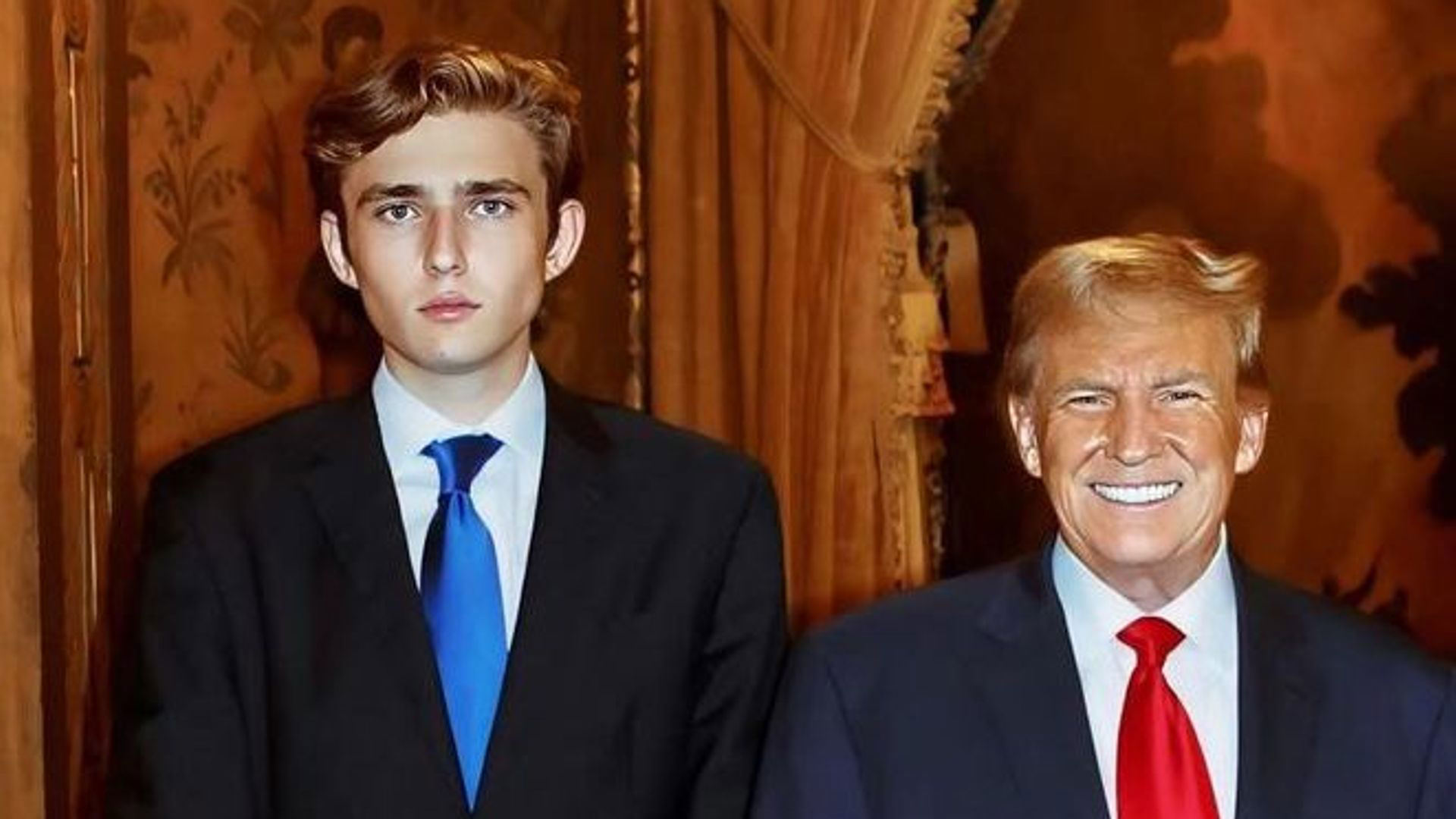Could the youngest Trump son, a figure known more for privacy than public performances, truly be a hidden talent on the stage? The recent surge of AI-generated videos featuring Barron Trump singing on popular television shows, coupled with skyrocketing Google search trends, suggests a compelling albeit manufactured narrative is taking shape.
The digital landscape is abuzz with speculation and fabricated performances. One particularly persistent rumor involves an alleged appearance on NBC's America's Got Talent alongside his father, former President Donald Trump, and tech mogul Elon Musk. The narrative, however, quickly unravels under scrutiny. A quick search reveals no credible news source reporting on such a spectacle, which, given Barron Trump's high profile, would undoubtedly have been a major headline.
Barron Trump, the youngest child of Donald and Melania Trump, has, by and large, remained shielded from the glaring spotlight that often accompanies those connected to the highest echelons of power. He has been afforded the privacy, for the most part, of attending private schools and pursuing his education, currently enrolled at New York University's Stern School of Business, a far cry from the frenetic pace of reality television. This inherent privacy makes any such public performance all the more unlikely.
- Somali Wasmo Telegram Your 2025 Guide Channels
- Mkvcinemas Your Guide To Movies Risks Legal Alternatives
| Attribute | Details |
|---|---|
| Full Name | Barron William Trump |
| Date of Birth | March 20, 2006 |
| Parents | Donald Trump, Melania Trump |
| Siblings | Ivanka Trump, Donald Trump Jr., Eric Trump, Tiffany Trump |
| Education | Private Schools, Currently Enrolled at New York University's Stern School of Business |
| Public Profile | Famously private, limited public appearances. |
| Rumored Activities | Subject of AI-generated content depicting musical performances. |
| Age | 18 years old (as of May 2024) |
| Associated Individuals | Donald Trump, Melania Trump, Elon Musk (in fabricated scenarios) |
| Reference Website | Whitehouse.gov (archived) |
The reality, it seems, is far less sensational. In February 2025, a YouTube channel under the name "vivo tunes" published a video titled "Barron Trump Singing in America's Got Talent | AI Cover." The accompanying description made it clear: "This song and video was created with the help of A.I. technology and does not represent the thoughts or attitudes of the imitated artists."
This, in essence, is the crux of the matter. Advanced AI tools are now capable of generating incredibly realistic, yet entirely fabricated, content. These tools can convincingly place individuals in scenarios that never occurred, complete with vocal performances and visual cues. The spread of such content raises a multitude of questions about authenticity, misinformation, and the very nature of reality in the digital age. The videos, of course, gained traction on social media platforms, where users eagerly shared the "news" of the performance.
This is not the first time, nor will it be the last, that Barron Trump has been at the center of online conjecture. Rumors about his supposed involvement in other popular television shows, such as American Idol, have also circulated, illustrating the publics fascination with the youngest Trump and his private life. The allure of the unknown, combined with the ease of content creation, has created the perfect storm for such artificial narratives to take root and spread.
The question of whether Barron Trump was ever on American Idol, similar to the America's Got Talent scenario, is easily answered. No. There is no credible evidence, or indeed any evidence at all, to support the claim. This is a classic example of how easily misinformation can be generated and disseminated in the digital age. It underscores the necessity for critical thinking and verification before accepting information as fact.
The phenomenon is not limited to Barron Trump. AI-generated content is increasingly prevalent across various domains, from entertainment to politics. Deepfakes, realistic but fabricated videos, can be created with relative ease, posing significant challenges to media literacy and trust. The ability to discern between genuine and artificial content is becoming an essential skill in the modern world.
The trend in artificial videos has already led to discussions on the ethics of these videos and the need for platforms and users to distinguish between real and generated content. This type of media is a wake up call, highlighting the importance of critical media literacy and verification in order to know the truth from falsehoods.
Barron Trump is, at present, focused on his education and his life outside of the public eye, but its his role as a public figure that continues to draw attention. His limited appearances in the public eye makes him a subject of intrigue, particularly as AI technology continues to advance.
This is further compounded by the show's long-standing popularity. The audience is a diverse mix of young people, older folks, and those from the entertainment industry. It is a show that is not just popular among Americans but throughout the world.
As we delve deeper into the age of AI, the stories surrounding Barron Trump, the Trump family, and countless others will no doubt continue to evolve. It's a testament to the impact of modern technology on not just the world of entertainment, but also on society itself. The ability to create such believable falsehoods is a major issue that everyone must learn to recognize.
- Decoding Metadata More Trending Topics Design Insights
- Vegamovies 20 Download Alternatives Legal Streaming Guide

